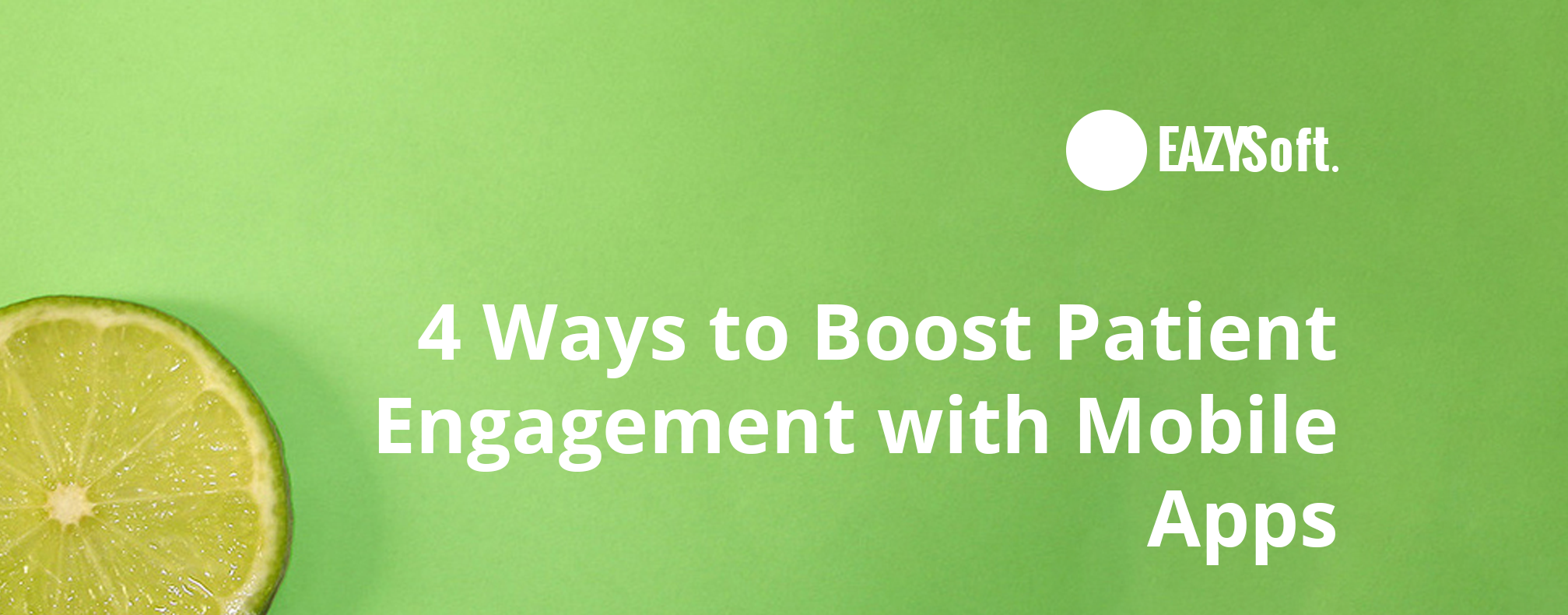
4 Ways to Boost Patient Engagement with Mobile Apps
Apps are used as a tool for almost every daily activity. Successful entrepreneurs understand that trend and use it in their businesses. Therefore, you can see mobile apps in any field from finance to retail. Healthcare is one more industry, which need mobile applications.
As healthcare providers look for ways to boost patient engagement, improve outcomes, and increase patient satisfaction, patient-facing mobile apps emerge as a viable solution. Patients are increasingly addicted to their apps – 80% of time spent on mobile devices is spent in apps. Information-snacking, communication, and conducting business via mobile apps is becoming a common experience. The mobile app user base is growing at an astonishing rate – 15 times faster than the users of stationary Internet.
Mobile is becoming ubiquitous in the Healthcare industry, playing a significant role as the industry continues to adopt a patient-centred approach. Healthcare leaders are now seeking to improve the patient experience through tailoring patient engagement strategies to meet the expectations of their digital savvy patients. Here are four greatest benefits from using applications in healthcare:
- Patient Engagement Apps Help Reduce Readmissions
Reducing preventable readmissions is one of healthcare providers’ biggest headaches these days. No wonder hospitals scramble to find solutions to improve patient outcomes and increase revenue in a competitive industry. Fortunately, customized mobile apps can help!
How Patient Engagement Apps Help Reduce Readmissions:
- Provide personalized post-release instructions and information
- Remind about timely follow up visits
- Enforce adherence to post-release regimen and prescriptions
- Provide easy access to healthcare information and resources
- Reduce time and cost of reaching out to patients
- Apps Encourage Patients to Proactively Manage Their Health
Having easy access to the necessary tools and resources, patients will be more likely to stay connected to their healthcare team and follow their wellness regimen. A streamlined mobile app offers patients an improved wellness experience and better satisfaction with how their health is managed.
How Apps Help Patients Manage Their Health:
- Keep patients connected and informed about your services
- Encourage daily health tracking
- Foster exercise and healthy living
- Promote education through streaming information and easy tools
- Apps Help Improve Trust and Build Relationships
One of the bigger issues that hospitals face is establishing trust between doctor and patient. Too often, patients dread their healthcare appointments because of complex treatments, long wait times, or lack of communication between their care team. Placing information and tools in the palm of their hand helps improve the patients’ trust and empower them to proactively take charge of their treatment. For the hospitals, streamlining patient referral and easily building relationships with physicians can prove a major competitive advantage.
How Apps Help Improve Trust & Build Relationships:
- Give access to a wider pool of specialists
- Help access information, credentials, and studies from the palm of your hand
- Connect, network, and recommend
- Improve workflow and efficiency
- Apps Boost Hospital’s Brand Image and Reputation
Patients are also consumers, and hospitals are competing for their care in a competitive market. So, patient engagement and satisfaction is more important than ever before. Make it easier for existing and new patients to find out information about hospital and services. Boost brand awareness through app features such as virtual tours, photo galleries, and social media. The easier you make the experience for your patients, the more likely they’ll be to promote your brand!
How Mobile Patient Engagement Increases Brand Awareness & Reputation:
- Easy access to information and communication
- Attractive presentation of your hospital via user-friendly galleries
- Useful information such as streaming ER wait times
- Social media engagement
To sum it up, having the right technology is the key to successful patient engagement. As smartphone usage continues to grow exponentially, so has the demand for mobile healthcare access. With today’s patients being digital natives, new healthcare initiatives should focus on enhancing the patient experience through improving access to care and delivering personalised communications via apps.
